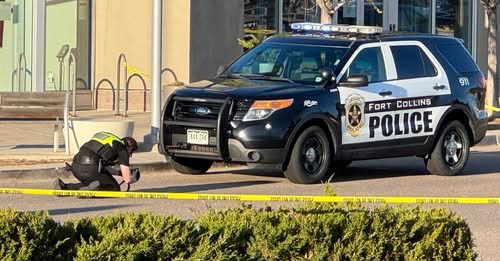
Chicago Police Officer Suicide – The city of Chicago was struck by a heart-wrenching tragedy this week with the death of a respected Chicago Police Department (CPD) officer, who tragically ended his own life in an apparent suicide. This incident, which unfolded in the early hours of the morning in Illinois, has cast a long shadow over both the department and the larger community, prompting a swift and significant law enforcement response, as well as a wave of mourning.
While the identity of the officer has yet to be officially disclosed pending family notification, sources have confirmed that the officer was well-respected and an integral member of the CPD. The loss of a colleague has deeply affected the department, where fellow officers are struggling with the emotional toll of such a devastating event.
The incident began when emergency calls were made, alerting officers to a potential emergency at the officer’s residence. When responding officers arrived, they found their colleague unresponsive. Despite immediate attempts by emergency medical personnel to revive him, the officer was pronounced dead at the scene. The investigation into the circumstances of his death remains ongoing, but the overwhelming grief felt by the department is undeniable.
Chicago Police Superintendent Larry Snelling issued a statement expressing deep sorrow and solidarity with the officer’s family. “Our department is heartbroken today,” Snelling said. “We have lost a member of our family. We grieve together and will provide support to those affected.” The statement reflected the profound emotional impact this tragedy has had on the force.
In response to the loss, a significant police presence was seen at the scene, with officers standing in solidarity to honor their fallen colleague. The large turnout not only underscored the seriousness of the incident but also served as a visible display of unity within the department. The police presence was also aimed at securing the privacy of the investigation and protecting the emotional well-being of the officer’s family.
Behind the badge, law enforcement officers face immense pressure. The mental health challenges they face as a result of their profession are often overlooked. Officers work in high-stress environments and are routinely exposed to traumatic events, including violence, death, and public scrutiny. The long-term effects of such exposure can severely impact an officer’s mental health, leading to depression, anxiety, and, tragically, suicide.
This recent death has brought attention to the urgent need for stronger mental health support for police officers. While some law enforcement agencies, including the CPD, have introduced counseling and wellness programs, experts argue that more needs to be done. The stigma surrounding mental health within police departments often prevents officers from seeking help. This tragic event has reignited conversations about the importance of mental health resources for officers, emphasizing the need for systemic changes in how departments address emotional well-being.
Retired officers and mental health professionals have expressed concern over the rising number of officer suicides across the country. Advocates are calling for mandatory wellness checks, peer support training, and cultural shifts within departments that normalize mental health conversations. By prioritizing the emotional resilience of officers, these reforms could help prevent future tragedies.
In the wake of the officer’s death, the Chicago Police Department is reportedly collaborating with mental health professionals to provide grief counseling and emotional support to the officer’s family, friends, and colleagues. Community members have also shown immense support, offering condolences and expressing gratitude for the sacrifices made by law enforcement.
As investigations continue, the loss of this officer remains a somber reminder of the invisible struggles faced by those who serve in law enforcement. This tragedy serves as a call to action for greater mental health awareness and support in police departments across the nation. The Chicago community, along with law enforcement, mourns not only the loss of a dedicated officer but also the reminder of the silent battles that many officers face in their daily lives.
For anyone struggling, there are resources available. Organizations such as the National Suicide Prevention Lifeline (988) and the National Police Suicide Foundation offer confidential support and guidance. The message is clear: no one is alone, and reaching out for help is vital. This moment of mourning may serve as a catalyst for change, fostering compassion, support, and necessary reform.
